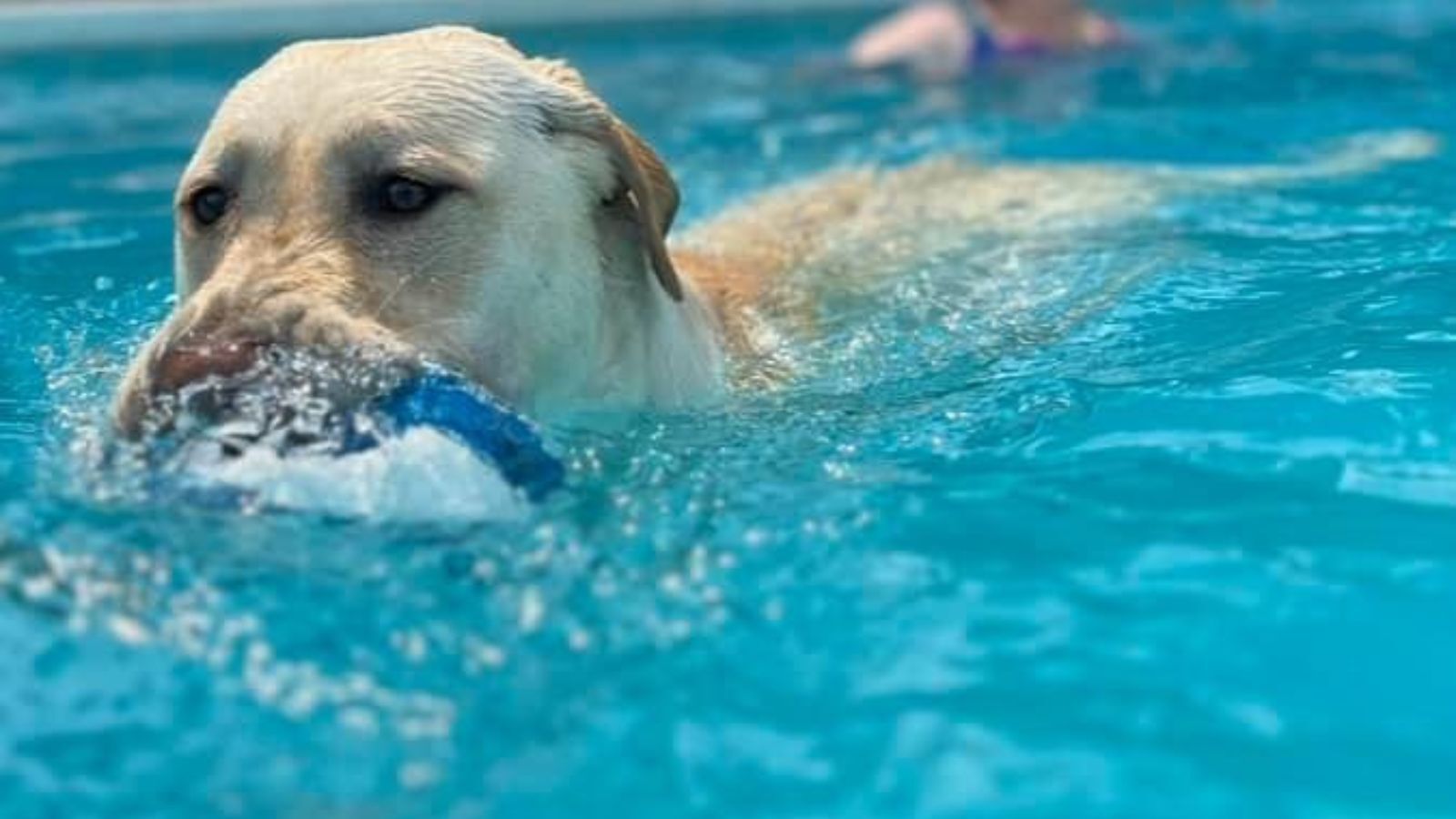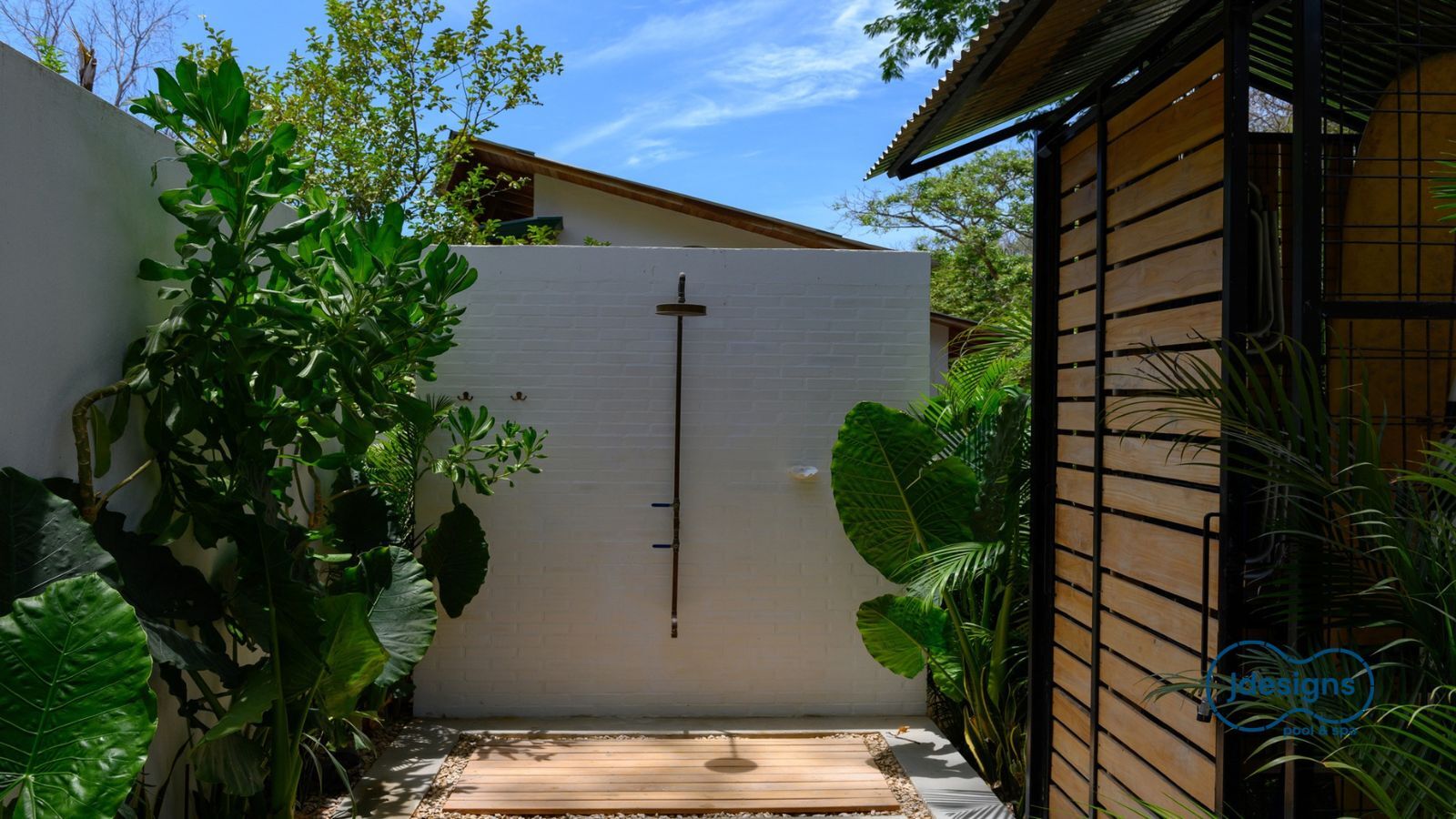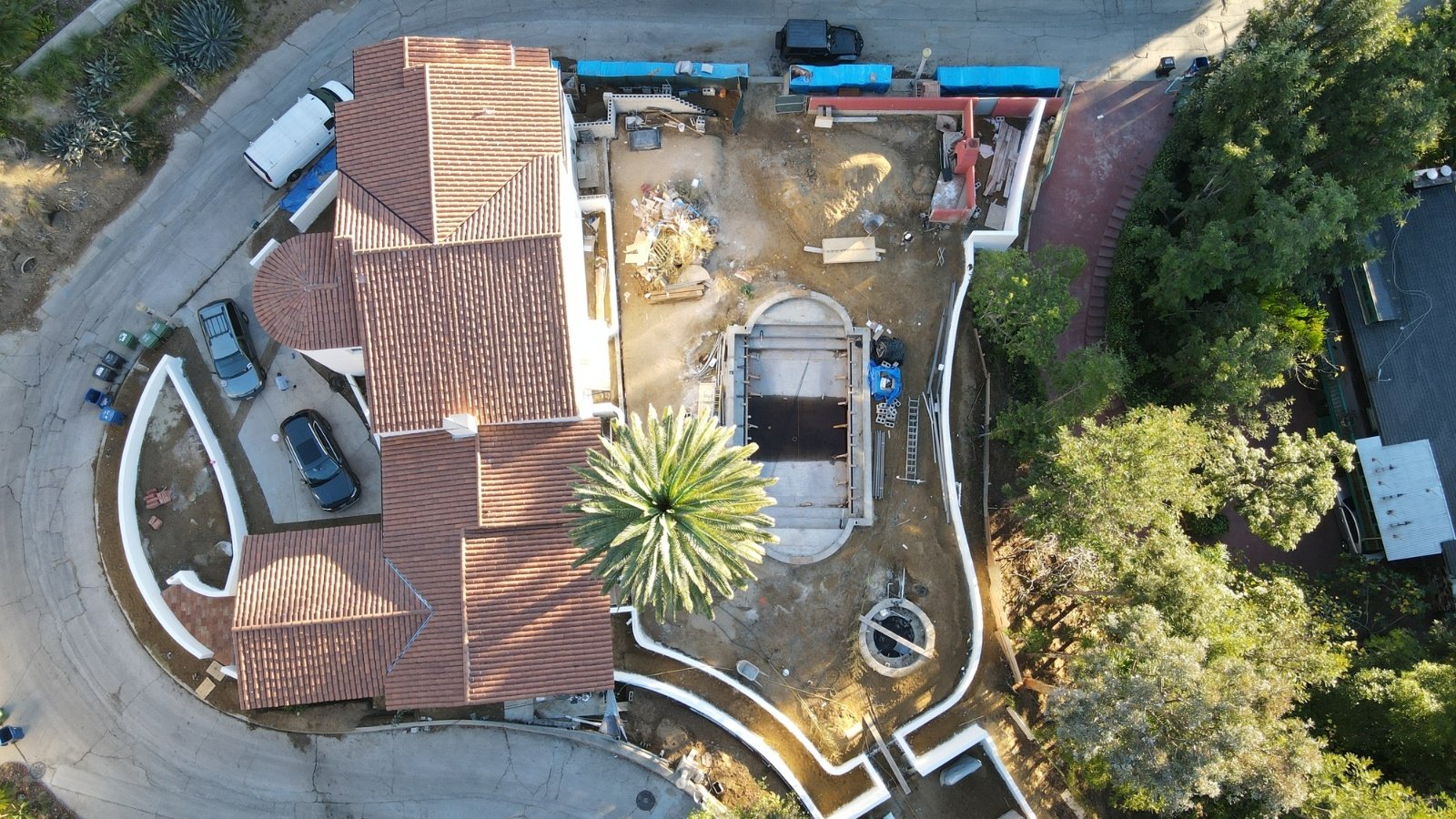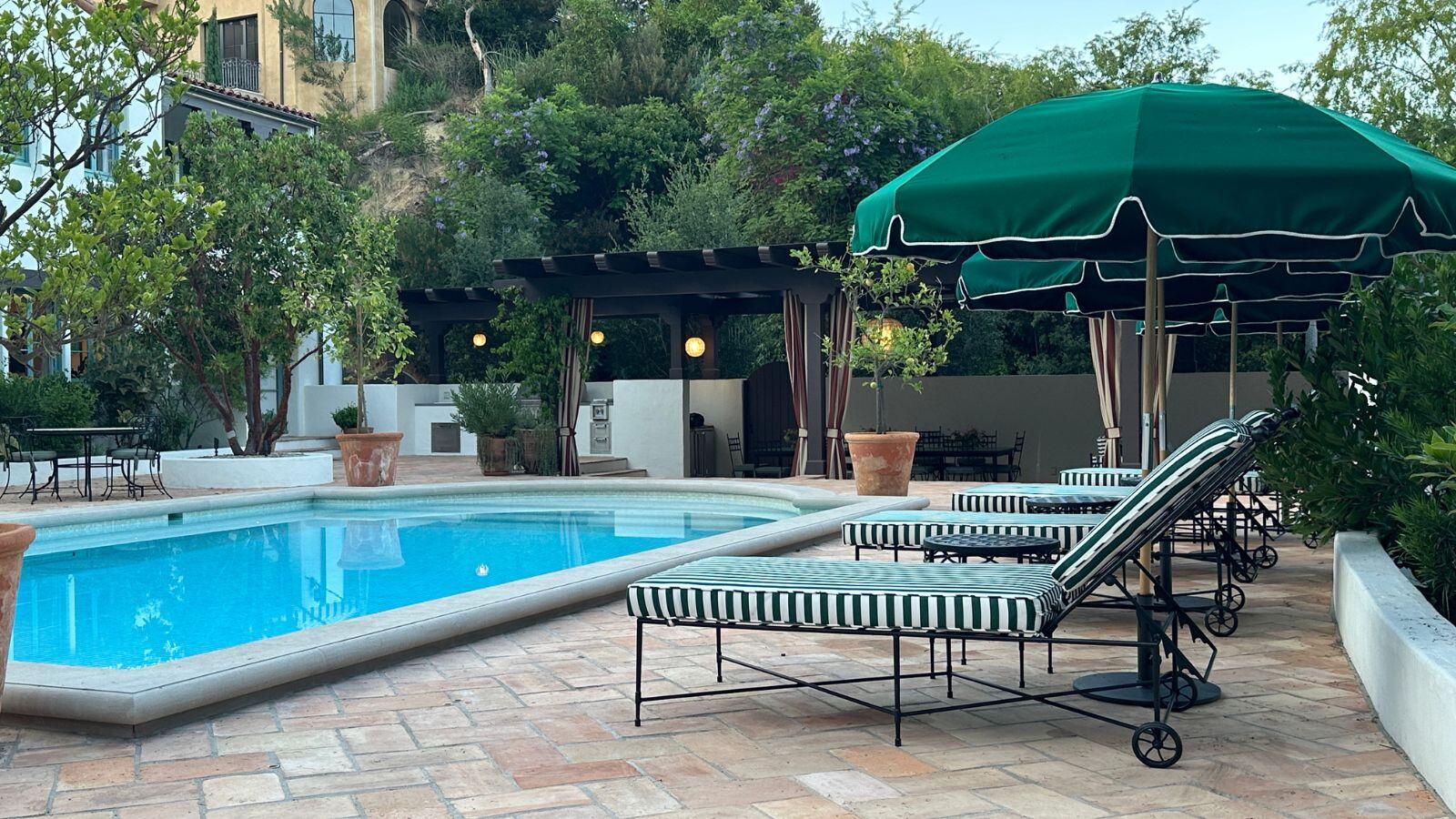Outdoor Showers for Pools: History, Design Ideas & How to Choose the best one
Water has always been more than a way to get clean; it’s how people reset and reconnect with their surroundings. From Japan’s misogi to the Turkish ...
3 min read
Liliana Escudero : Updated on October 21, 2025

Is your dream of a beautiful backyard pool clouded by worries about pet safety, durability, or upkeep? Many pet owners share the same concerns: How do I make a new or remodeled pool truly safe, comfortable, and manageable for my dog and my family?
Our goal: By the end of this guide, you’ll have simple, clear steps for each phase from design to daily care that set a basic pool apart from a premium, pet-friendly retreat. As leaders in luxury pool construction, J Designs Pool & Spa offers proven experience, advanced technology, and reliable solutions for every project.
What’s Inside (Quick Preview):
You’ll Learn:

Always rinse your dog with clean water before swimming to remove debris. Rinse again after swimming to protect their skin and surfaces.
.jpg?width=181&height=242&name=Filter%20Vertical%20Blog%20Visual%20(3).jpg)
2. Use a Proper Pet Life Jacket When Needed

A snug-fitting canine life vest adds safety, especially for new or senior swimmers.
Unsure if your dog can swim? You can use a reliable, well-reviewed dog vest, especially for new or older pets.
Drinking chlorinated water can lead to stomach upset or worse.
Always provide fresh water nearby and monitor your dog to discourage them from drinking pool water.

A fence is your first line of defense when your dog isn’t supervised.
A dog-specific splash zone makes pool time safer and more fun.
Don’t assume your dog will love the water right away. Start in shallow areas and use encouragement, patience, and rewards.. Let your dog take the lead and never force them into the pool.
Teaching a clear way out is just as important as a safe way in. Always show your dog where to leave the pool. Practicing this makes swimming safer and less stressful for you both.
For more tips, visit AKC: Pool Safety Tips to Teach Your Dog to Swim, PetMD: Pool Safety Tips for Dogs
![Copy of Copy of [TEMPLATE] Horizontal Blog Visual (1)](https://www.jdesigns.com/hs-fs/hubfs/Dogs%20Blog/Copy%20of%20Copy%20of%20%5BTEMPLATE%5D%20Horizontal%20Blog%20Visual%20(1).jpg?width=507&height=380&name=Copy%20of%20Copy%20of%20%5BTEMPLATE%5D%20Horizontal%20Blog%20Visual%20(1).jpg)
Making your pool dog-friendly is not complicated; it just takes smart design, quality building, and a few practical habits.
When you start with the right materials, add safe entry points, maintain your water, and provide basic training, you create an environment that’s inviting for both people and pets and easy to manage all year.
You’ll enjoy a beautiful, long-lasting pool that adds value to your home, simplifies daily care, and lets your entire family, including your dog, enjoy the best of Southern California outdoor living.
If you want a pool upgrade or a custom build that’s safe for every family member, including pets, reach out to J Designs Pool & Spa. Let’s make it happen.
Browse our gallery to see authentic pet-friendly designs or contact our team for a consult tailored to your needs.

Water has always been more than a way to get clean; it’s how people reset and reconnect with their surroundings. From Japan’s misogi to the Turkish ...

Building a luxury pool is a significant investment, one that should deliver both beauty and peace of mind. Yet, even the most impressive projects can...

For more than twenty years, J Designs has partnered with discerning homeowners to create exceptional pools and luxury outdoor environments. Again and...